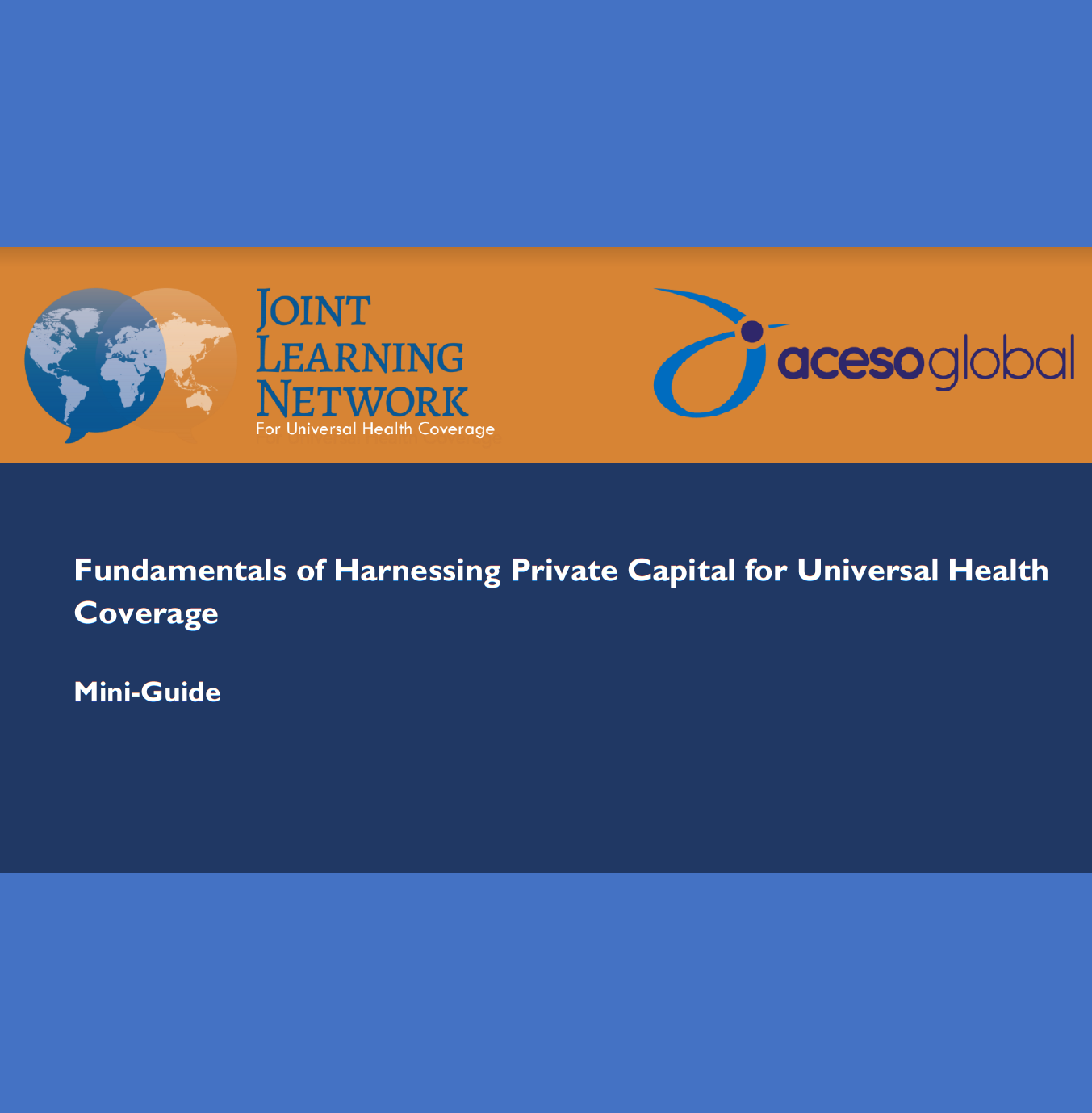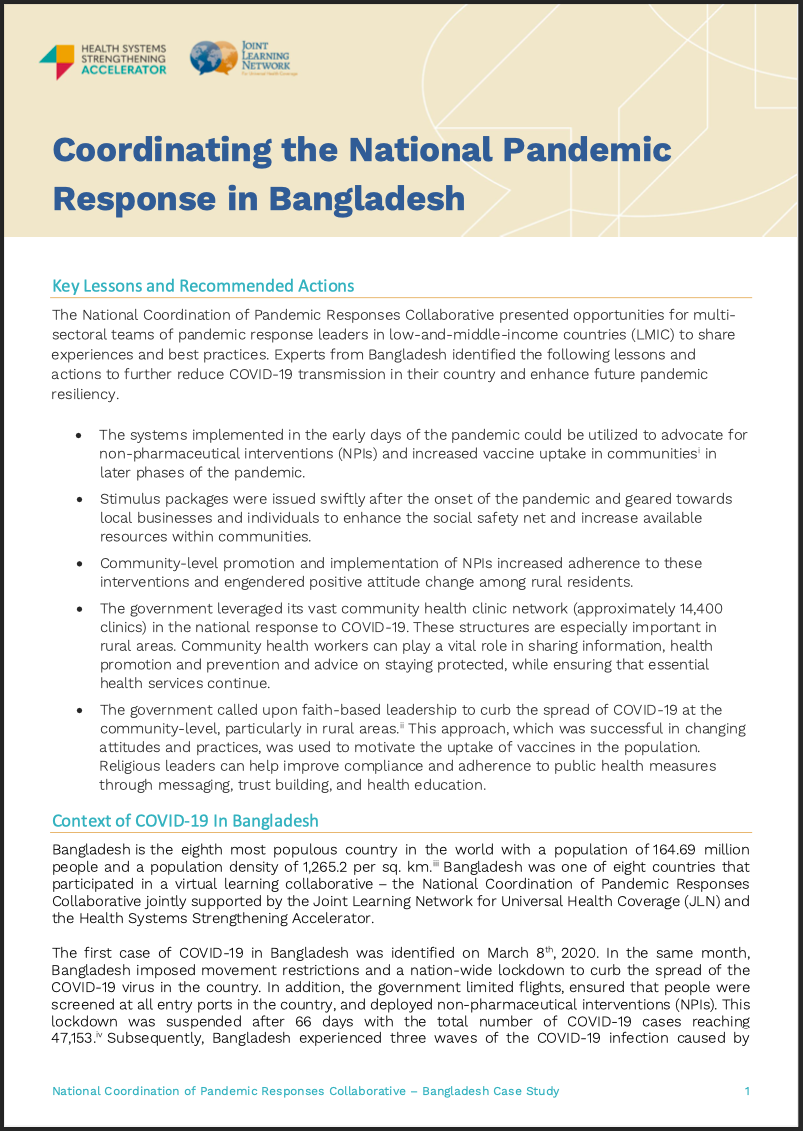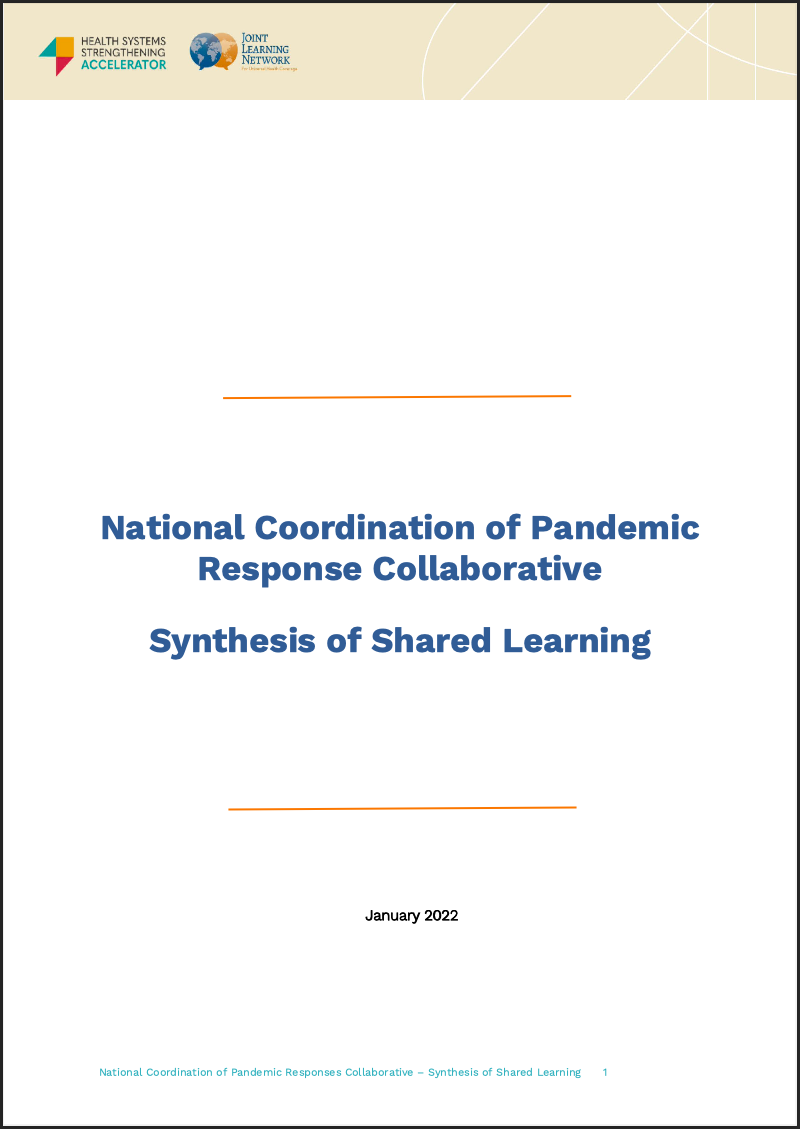Report: Patient Pathways and Pandemics: COVID-19 and Beyond Learning Exchange
April 29, 2022
The Community of Practice (COP) supporting Malaysia’s improvement and expansion of telemedicine for primary health care (PHC), referred to as e–Consultations, represents a potential model for future implementation–oriented JLN engagements. The Malaysia team, with the support and accompaniment of country participants (CPs) and technical facilitation teams (TFTs), successfully implemented key activities along three technical thematic areas despite of the limitations they faced in the midst of an ongoing globalpandemic with unpredictable surges. The duration of the COP was 11 months, from February 2021 to January 2022. The main features of the joint–learning model consisted of: the selection of an implementer country (Malaysia); adoption of an advisory and coaching–based learning approach in which TFTs and CPs assisted the Malaysian teams understand and solve practical issues related to implementation; use of regular but short virtual COP meetings; division of activities and outputs into “implementation planning” and “implementation accompaniment” phases; quantitative measurement of results, and development of a user–friendly e–library of relevant knowledge resources. Based on the technical results, several insightful policy implications came to the fore that can inform future e–Consultation scale–up and improvement efforts in Malaysia and globally. A number of lessons emerged from COP experience than can guide the design of future JLN implementation–oriented engagements.



